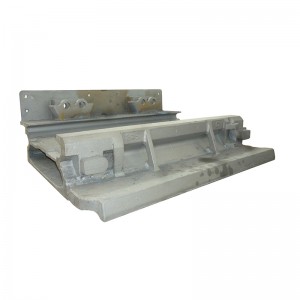- Afrikaans
- Albanian
- Amharic
- Arabic
- Armenian
- Azerbaijani
- Basque
- Belarusian
- Bengali
- Bosnian
- Bulgarian
- Catalan
- Cebuano
- China
- China (Taiwan)
- Corsican
- Croatian
- Czech
- Danish
- Dutch
- English
- Esperanto
- Estonian
- Finnish
- French
- Frisian
- Galician
- Georgian
- German
- Greek
- Gujarati
- Haitian Creole
- hausa
- hawaiian
- Hebrew
- Hindi
- Miao
- Hungarian
- Icelandic
- igbo
- Indonesian
- irish
- Italian
- Japanese
- Javanese
- Kannada
- kazakh
- Khmer
- Rwandese
- Korean
- Kurdish
- Kyrgyz
- Lao
- Latin
- Latvian
- Lithuanian
- Luxembourgish
- Macedonian
- Malgashi
- Malay
- Malayalam
- Maltese
- Maori
- Marathi
- Mongolian
- Myanmar
- Nepali
- Norwegian
- Norwegian
- Occitan
- Pashto
- Persian
- Polish
- Portuguese
- Punjabi
- Romanian
- Russian
- Samoan
- Scottish Gaelic
- Serbian
- Sesotho
- Shona
- Sindhi
- Sinhala
- Slovak
- Slovenian
- Somali
- Spanish
- Sundanese
- Swahili
- Swedish
- Tagalog
- Tajik
- Tamil
- Tatar
- Telugu
- Thai
- Turkish
- Turkmen
- Ukrainian
- Urdu
- Uighur
- Uzbek
- Vietnamese
- Welsh
- Bantu
- Yiddish
- Yoruba
- Zulu
Nov . 27, 2024 22:00 Back to list
Custom Sand Casting Solutions for High-Quality Production in China
Custom China Sand Casting An Overview of Processes and Benefits
When it comes to manufacturing metal components, sand casting is one of the oldest and most versatile techniques available. Particularly in China, the custom sand casting market has become increasingly sophisticated, catering to diverse industries with a variety of demands. This article explores the intricacies of custom sand casting in China, detailing its processes, advantages, and applications.
What is Sand Casting?
Sand casting is a metal casting process that utilizes sand as the mold material. It involves creating a mold by packing sand around a pattern, making an impression of the desired part, and then pouring molten metal into the mold cavity. Once the metal cools and solidifies, the sand mold is removed to reveal the cast part. This method is favored for its ability to produce complex shapes, its cost-effectiveness in small to medium production runs, and the variety of metals that can be used.
The Sand Casting Process in Detail
The custom sand casting process typically involves several key steps
1. Pattern Making The first step is creating a pattern of the part, which can be made of various materials including wood, plastic, or metal. The pattern should account for the shrinkage of the metal during cooling and any necessary allowances for machining.
2. Mold Creation Once the pattern is ready, it is placed in a mold box, and sand mixed with a binding agent is packed around it. The sand must be compacted sufficiently to hold its shape once the pattern is removed.
3. Core Making (if needed) For parts that require internal cavities, cores made from a similar sand mixture are also created. These cores are placed in the mold before the molten metal is poured.
5. Cooling and Solidification The molten metal is left to cool and solidify in the mold. The time required depends on the thickness of the casting and the type of metal used.
6. Shakeout Once cooled, the sand mold is broken away to release the cast part. This process is known as shakeout.
custom china sand casting

7. Finishing After the casting is removed, it may require further machining, cleaning, or finishing processes to meet the final specifications.
Advantages of Custom Sand Casting in China
China's sand casting industry offers several advantages that make it a preferred choice for manufacturers worldwide
1. Cost-Effectiveness Sand casting can be more economical than other methods, especially for low to medium volume production. China’s manufacturing capabilities, coupled with relatively low labor costs, contribute to competitive pricing.
2. Versatility Sand casting can accommodate a wide range of alloy materials, including aluminum, iron, and bronze, making it suitable for various applications from automotive parts to industrial machinery.
3. Complex Shapes The casting process allows for the creation of intricate designs that would be difficult or impossible to achieve with other manufacturing methods.
4. Rapid Prototyping The speed of pattern creation and the sand molding process means that prototypes can be developed quickly, allowing for accelerated product development cycles.
5. Skilled Workforce China boasts a large pool of experienced craftsmen and engineers specialized in casting technologies, ensuring high-quality outputs and innovative solutions to complex challenges.
Applications of Custom Sand Casting
The applications of custom sand casting in China are vast and varied. Industries such as automotive, aerospace, machinery, and even art and sculpture benefit from this technology. Automotive manufacturers, for example, often utilize sand cast components for engine blocks, transmission cases, and other critical parts, while the aerospace sector benefits from lightweight but strong components made from advanced alloys.
Conclusion
Custom sand casting in China represents a blend of traditional craftsmanship and modern manufacturing techniques. Its ability to produce high-quality, complex metal parts at competitive prices makes it an attractive option for businesses around the globe. As industries continue to evolve and innovate, sand casting remains a vital process in the manufacturing landscape, adapting to meet the ever-changing demands of consumers and markets alike. Whether for prototyping or large-scale production, China’s custom sand casting capabilities continue to lead the way.
-
Premium Cast Iron Water Main Pipe: Durable, Corrosion-Resistant
NewsAug.03,2025
-
Durable Cast Iron Water Mains | AI-Optimized Systems
NewsAug.02,2025
-
High-Efficiency Propane Boiler for Baseboard Heat | Save Energy
NewsAug.01,2025
-
Premium Source Suppliers for Various Gray Iron Castings
NewsJul.31,2025
-
Durable Cast Iron Water Main Pipes | Long-Lasting
NewsJul.31,2025
-
High-Quality Cast Iron Water Main Pipe for Durable Infrastructure
NewsJul.30,2025


